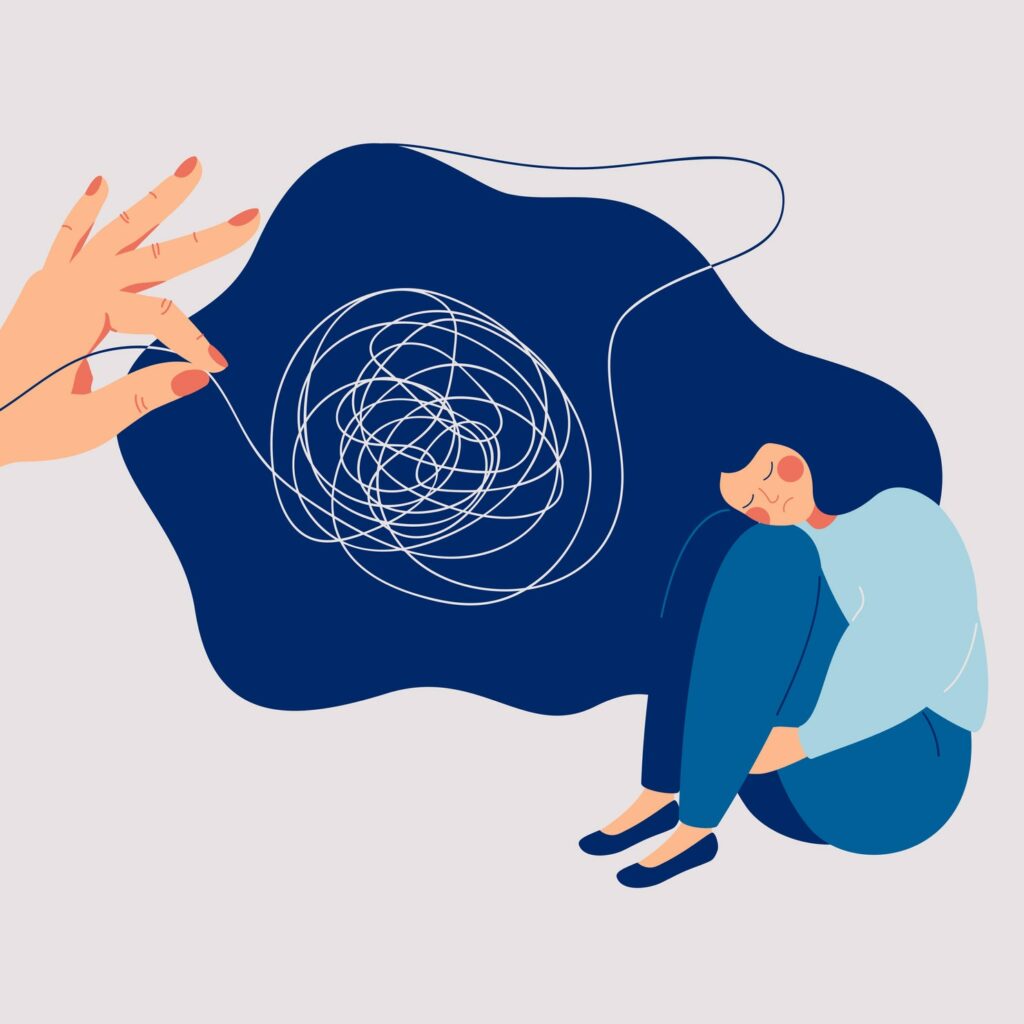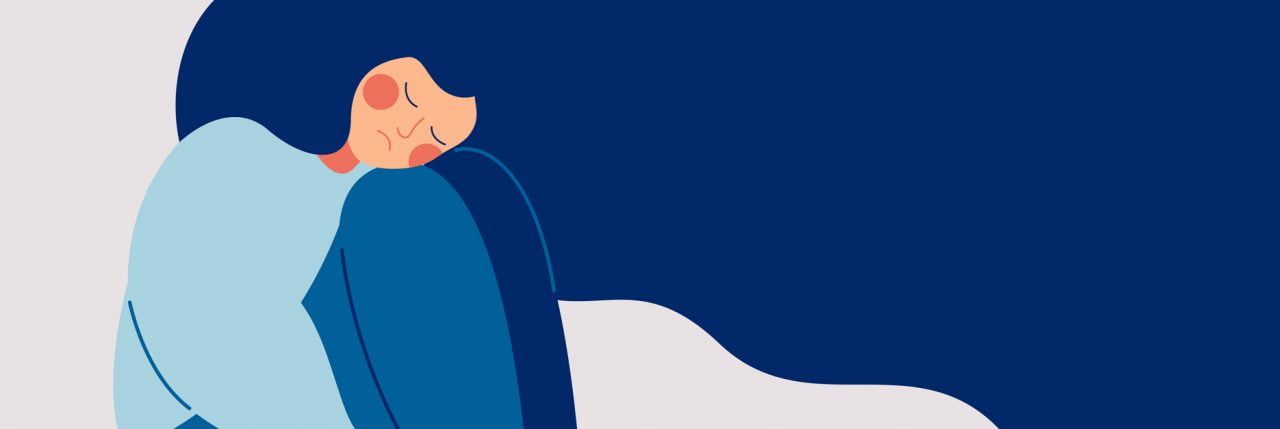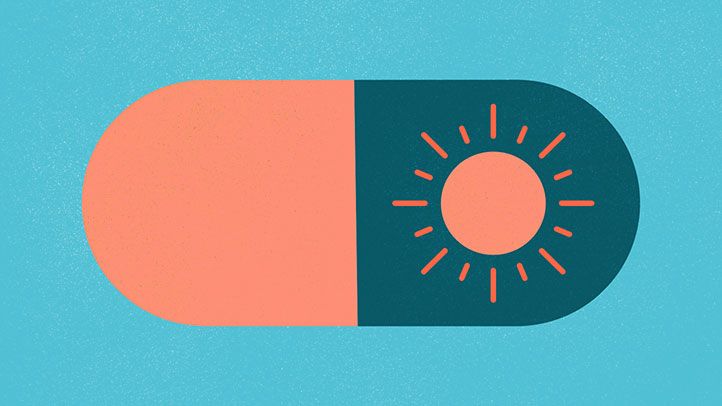Depression is a tough topic that many people have to deal with. It can be difficult to know how to deal with depression. But the good news is that there are strategies for coping! This blog post will discuss a few different ways you can help yourself when dealing with depression.
Contents
- 1 What Is Depression?
- 2 Classification Of Depression
- 3 Symptoms of Depression
- 4 Coping Tips For Dealing With Depression
- 4.1 Talk to someone about how you’re feeling
- 4.2 Change your lifestyle
- 4.3 Try meditation or yoga for stress relief
- 4.4 Write in a journal or diary
- 4.5 Participate in activities you enjoy
- 4.6 Write, paint or take pictures
- 4.7 Spend time with friends and family
- 4.8 Attend therapy for depression
- 4.9 Remind yourself- you can get through this
- 5 Talking to a Professional
- 6 Treatment Strategies Used for Depression
- 7 Conclusion
What Is Depression?

Depression is a mental illness that consists of persistent feelings of sadness and hopelessness. It can interfere with your ability to work, sleep, eat, and enjoy life. Depression may cause physical symptoms such as headaches, chest pain, or fatigue.
Classification Of Depression

Depression is classified into different categories. However, we just mention here its three broad types depending on their duration.
Major Depression
This is a mood disorder in which a person has at least five symptoms of depression over two weeks. It normally includes:
- Feeling sad or down,
- Losing interest in normally enjoyable activities,
- Eating and sleeping too much or not enough,
- Having trouble concentrating,
- Feeling tired all the time, etc.
Depressive Disorder
This is a mood disorder in which symptoms of depression occur for most days over two weeks. But it does not meet the specific criteria that define major depressive episodes.
Dysthymic Disorder
This is a mood disorder characterized by a low-grade depression that lasts for at least two years. This disorder must be accompanied by at least two other symptoms of depression.
Symptoms of Depression

There is no one set way to feel when you have depression. Everyone experiences it differently depending on the severity and type of depression they experience.
However, there are many signs and symptoms of depression. Some people might only experience a few, while others might experience many. The most common symptoms are listed below:
- Feeling sad or hopeless nearly every day
- Loss of interest or pleasure in activities you used to enjoy
- Changes in weight or appetite
- Difficulty sleeping or oversleeping
- Agitation or restlessness
- Fatigue or loss of energy
- Feelings of worthlessness, guilt, or shame
- Diminished ability to think, concentrate, make decisions, or remember things
- Thoughts of death or suicide
- Experiencing little interest or pleasure in activities you once enjoyed
- Feeling tired, sluggish, or low energy most of the time
- Difficulty concentrating, remembering details, or making decisions
- Trouble sleeping, early-morning awakening, or oversleeping
- Changes in appetite and weight
- Feeling worthless or guilty about things that are not your responsibility
- Having thoughts of death or suicide
If you are experiencing any of these symptoms, it is important to see a psychologist or mental health professional. They will be able to diagnose you and provide the necessary treatment.
Coping Tips For Dealing With Depression

There are many ways that people cope with depression. Some people may seek professional help, while others may try to deal with it on their own. Here are some coping strategies for dealing with depression:
Talk to someone about how you’re feeling
It can be really helpful to talk to somebody who will listen and understand what you’re going through.
Change your lifestyle
Try to get as much exercise as possible, and make sure you’re eating right. Also, get enough sleep.
Try meditation or yoga for stress relief
These activities can also help with anxiety that often comes along with depression.
Write in a journal or diary
This is an effective way of dealing with difficult emotions.
Participate in activities you enjoy
This can help boost your mood and make you feel more positive.
Write, paint or take pictures
The more you can express yourself creatively the better!
Spend time with friends and family
It can be hard when people don’t understand what you’re going through but they must try their best to be supportive. However, stay in touch with friends and family members who care about you.
Attend therapy for depression
It may be helpful to talk about your feelings with someone who has experience helping people deal with similar issues like depression.
Remind yourself- you can get through this
This is something that may take time, but it’s important to keep in mind.
NOTE: There is no one “right” way to deal with depression – what works for one person may not work for another. It is important to find what strategies work best for you and to stick with them. If your current coping mechanisms aren’t working, or if your depression gets worse, speak to a psychologist or therapist for help. There is no shame in seeking help – it can be life-saving.
Talking to a Professional

If you feel like your depression is becoming unmanageable, it’s important to speak with a professional. Some people might go to their primary care physician and discuss antidepressants or therapy.
Others might want to seek more intensive help and see a psychologist or psychiatrist for medication management and/or talk therapies such as cognitive-behavioral therapy (CBT) or dialectical behavior therapy (DBT).
Depression can be a very difficult thing to deal with, but there are many resources and people who can help. It’s important to remember that you’re not alone in this and that there is hope for recovery. If you are feeling suicidal please get professional help right away!
Treatment Strategies Used for Depression
There are various treatment strategies used to treat depression, which include:
Medication
The most common medications prescribed are antidepressants such as selective serotonin reuptake inhibitors (SSRIs) and tricyclic antidepressants. However, these medications do not work for everyone so it is important to visit your doctor and ask what other treatment options are available.
Psychotherapy
This involves talking about problems with a trained therapist to learn how thoughts, feelings, and behaviors influence each other. It helps you understand the connection between them all as well as why they contribute to depression.
Brain stimulation therapies

This includes treatments such as electroconvulsive therapy (ECT), transcranial magnetic stimulation (TMS), and deep brain stimulation. These therapies use electrical or magnetic pulses to stimulate the brain which can help improve mood in some people.
Light therapy
This is a treatment where you sit near a lamp that emits light similar to daylight. It helps improve mood by increasing serotonin in the brain and reducing melatonin which is a hormone that makes you feel sleepy.
Lifestyle changes
This involves improving your diet, getting more physical activity, being socially active with friends or family members, and avoiding drugs/alcohol as much as possible.
NOTE: If you are experiencing symptoms of depression, it is important to seek professional help. Many different treatment strategies can be tailored specifically for you. With the right support, you can manage your depressive episodes and improve your quality of life.
Conclusion
There are many ways that people cope with depression and each person is unique in how they deal with their struggles. If these coping strategies don’t work out though there’s no need to worry. Because there are other things you can do as well! It’s important to remember that you are not your depression and you can get through this. You are worth it!
Also, it’s important to understand that depression is a mental health issue and not just a bad mood. If you’re feeling down for more than two weeks at a time or if your symptoms are interfering with your daily life, make an appointment with your doctor. He/she will be able to prescribe medication and provide resources for managing the condition like therapy or counseling sessions. Don’t let yourself get stuck in this spiral of sadness- seek help today!
For more information, please contact MantraCare. Depression is a mental illness characterized by persistent feelings of sadness, hopelessness, and loss of interest in daily activities. If you have any queries regarding Online Depression Counseling experienced therapists at MantraCare can help: Book a trial Depression Therapy session


